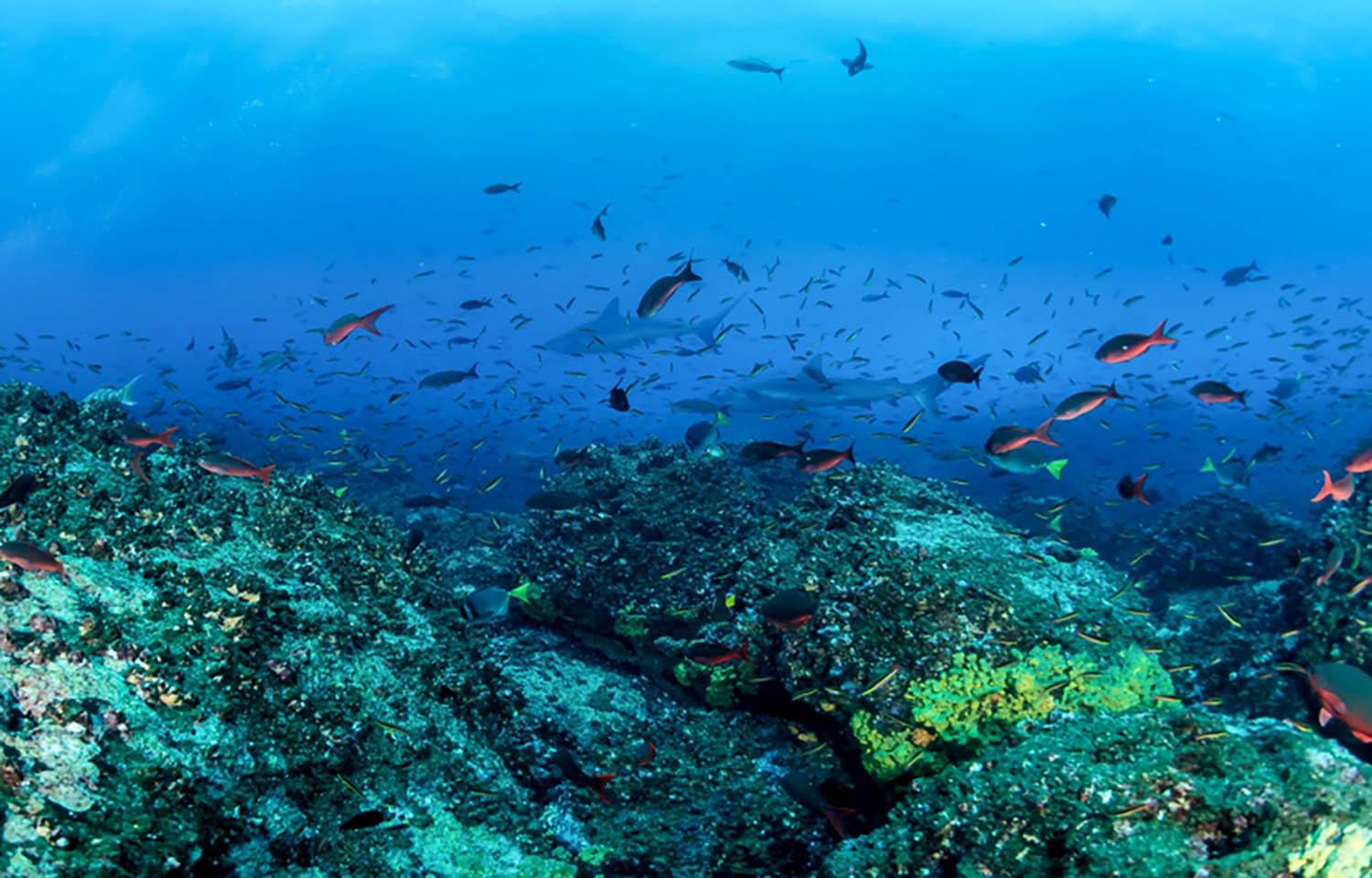The South Asian archipelagic country of Maldives has been considering whether to grant new licenses for longline fishing off the nation’s biodiverse shores, drawing criticism from NGOs and other organizations that say the practice harms vulnerable shark populations.
The Maldivian government has opened and closed longline fishing in the nation’s waters several times since foreign-flagged vessels first carried out the practice in 1985. In 2010, the country curtailed longline fishing due to management issues but briefly reopened the practice to fishers again in 2011. Most recently, the government ceased new licenses in 2019 due to non-compliance of vessels and data irregularities.
Concerns about the issuance of new licenses for longline fishing in the Maldives, mainly that it has the potential to create serious ecological, economic, and reputational risks, have prompted the Maldives Ocean Alliance, an organization comprising NGOs, scientists, environmental advocates, and private-sector investors, as well as the Yellowfin Tuna Fishermen’s Union, to launch a petition calling on anyone concerned to voice their complaints on the issue.
According to scientists backing the petition, the new longline licenses could threaten the balance the Maldives has achieved, which manages the resource while also providing economic opportunity for communities and allowing other industries like tourism, important to the Maldivian economy, to continue to grow.
“Allowing longline fishing poses grave risks to local livelihoods and food security, as it could threaten crucial fish stocks. It would introduce competition that undermines the economic stability of local fishers whose livelihoods depend on sustainable fishing techniques,” said Shaha Hashim, chairperson of conservation NGO Maldives Resilient Reefs and a member of the Maldives Ocean Alliance. “Further declines in yellowfin and bigeye tuna stocks could also affect traditional fishers, who would face competition from groups capable of catching large quantities through longlines. The draft regulation allows for shark bycatch to be landed, a move that threatens the Maldives’ status as a shark sanctuary. Sharks, which have seen a decline of over 70 percent in the past 50 years, are crucial to fisheries, tourism, and ocean health.”
Tourism is a vital component of the nation's economy, and many tourists come to the Maldives to experience the country’s marine biodiversity, including threatened shark species, as well as manta rays and seabirds that are vulnerable to longline bycatch.
In contrast, bycatch rates related to pole-and-line fishing are extremely low, estimated at 0.65 percent of total catch. Most bycatch species stemming from pole-and-line are pelagic fish species and often do not have a significant impact on species important to tourism in the Maldives, according to Maldives Ocean Alliance.
Bycatch from pole-and-line is also often sold on the local market or consumed directly by fishers, which leads to almost zero discard of dead animals at sea.
"The Maldives is a global leader in ocean conservation, having protected its waters from fishing for sharks, manta rays, and turtles since 2009. Resuming longline fishing would be a highly efficient way to decimate iconic ocean wildlife and squander that hard-earned reputation." Callum Roberts, a marine conservation professor at the University of Exeter in England, said.
That hard-earned reputation was earned through efforts such as the implementation of a shark fishing and export ban in the Maldives in 2010, with the resulting recovery recognized as a conservation success story to many, according to the Maldives Ocean Alliance. However, longline fishing, according to the group, threatens any conservation gains made and only leads to short-term, misleading financial benefits.
“This recognition of the Maldives’ sustainability leadership brings economic benefits to the country not just from tourism but also, importantly, by ensuring the health of the Maldivian ocean, coral reefs, and coastal communities,” the Maldives Ocean Alliance petition states. “Longline fishing profits are often short-lived due to overfishing and outweighed by the hidden costs of damage to local marine ecosystems. These costs burden governments and drain financial resources that could be invested in more sustainable and lucrative sectors.”








